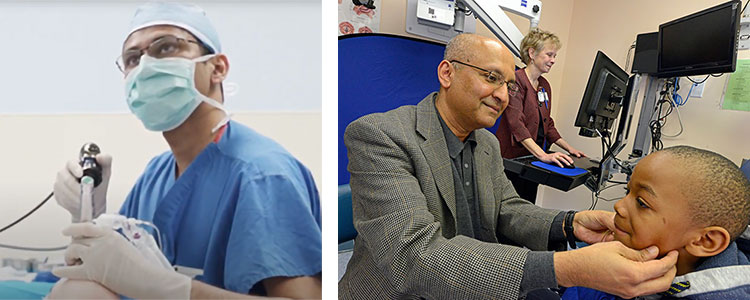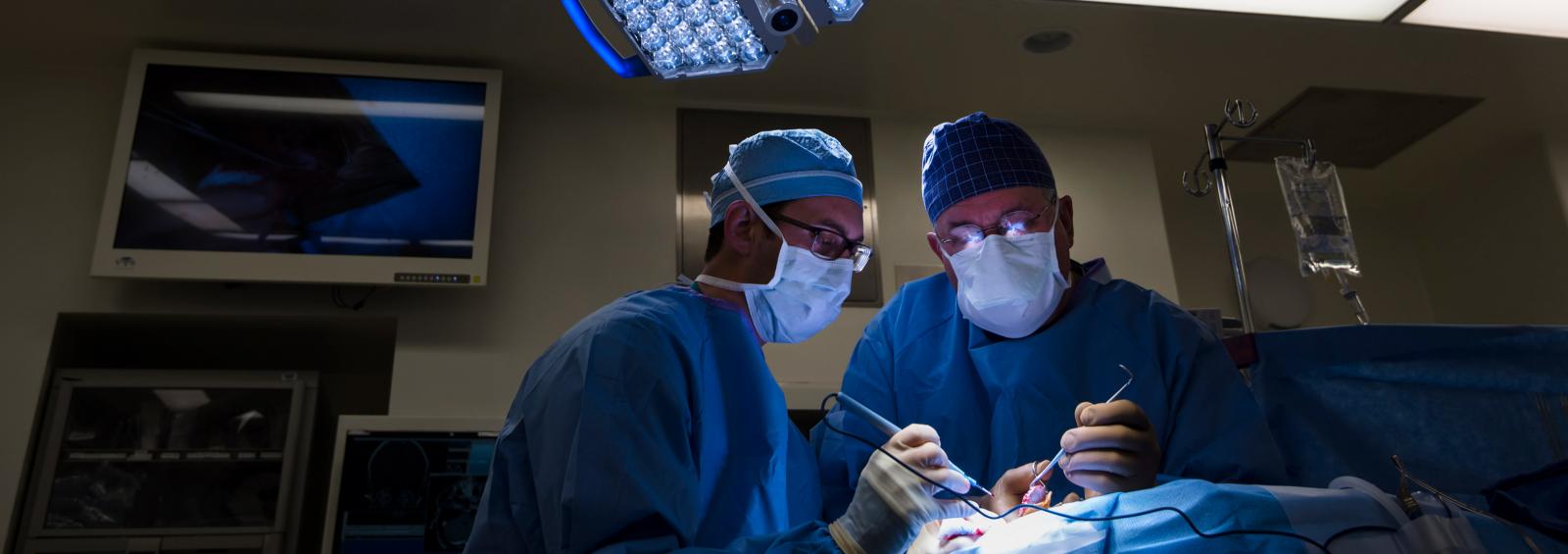Sinus Care Strategies from a Sinus Expert
Sinus Care Strategies from a Sinus Expert
Blog Article
Exploring the Field of Otolaryngology: What to Anticipate When You Get In Touch With an ENT
Otolaryngology, generally referred to as ENT, incorporates the medical diagnosis and treatment of throat, ear, and nose disorders. For those experiencing relevant problems, seeking advice from an ENT expert can offer quality and relief. Understanding what to expect during such consultations is important for effective communication and care. This review will describe key facets of the ENT experience, including common reasons for check outs and the processes involved in medical diagnosis and therapy.

Understanding Otolaryngology: A Review
Otolaryngology, commonly referred to as ENT (Ear, Nose, and Throat) medication, is a specialized branch of medicine that focuses on the medical diagnosis and therapy of problems affecting these vital locations of the body. This area incorporates a wide variety of problems, including those pertaining to hearing, equilibrium, respiratory feature, and speech. Otolaryngologists are trained to take care of both medical and medical therapies, utilizing innovative methods and innovations. Their knowledge extends beyond conventional disorders, resolving problems such as allergic reactions, sinus infections, and hearing loss. In addition, they play a crucial role in the monitoring of head and neck cancers cells, giving detailed care tailored to individual patient needs. On the whole, otolaryngology continues to be vital for keeping wellness and top quality of life in affected individuals.
Common Factors to See an ENT Specialist
Several individuals look for the experience of an ENT expert for a range of factors, reflecting the diverse nature of conditions that influence the ear, throat, and nose. Common issues consist of persistent sinusitis, which usually brings about relentless nasal congestion and face pain. Allergic reactions and their associated symptoms, such as itching and sneezing, also trigger check outs to these professionals (Otolaryngology). Hearing loss, whether sudden or steady, is an additional considerable factor for examination. Furthermore, people may seek examination for throat disorders, including consistent hoarseness or swallowing problems. Rest apnea, identified by cut off breathing during sleep, is often attended to by ENT specialists as well. Each of these problems highlights the importance of specialized treatment in managing intricate ENT-related health issues
Getting ready for Your ENT Visit
When planning for an ENT appointment, it is vital to gather appropriate information and consider any certain concerns. Clients need to assemble a detailed medical history, including previous ear, nose, or throat concerns, surgeries, and existing medicines. Documenting signs-- such as regularity, extent, and period-- can provide beneficial understandings for the ENT professional. In addition, people ought to prepare a checklist of concerns they desire to ask, making sure that all problems are addressed throughout the go to. Bringing along any pertinent medical records or test outcomes can further aid the ENT in comprehending the patient's condition. People must verify their appointment information, consisting of day, time, and area, to decrease any type of last-minute confusion. Appropriate prep work can improve the effectiveness of the assessment and lead to far better results.
What to Anticipate During the Appointment
As the examination begins, the patient can anticipate to take part in a complete conversation with the ENT specialist regarding their signs and medical history. The professional will ask concerning the duration, frequency, and intensity of symptoms such as hearing loss, nasal congestion, or sore throat. Furthermore, the client's previous medical problems, drugs, and any type of appropriate family background will be evaluated, aiding the specialist in developing a complete understanding of the client's health. The ENT may additionally inquire about way of living aspects, such as direct exposure to toxic irritants or allergens. This open dialogue establishes a foundation for the appointment, making sure that the client's worries are attended to and establishing the phase for any essential evaluations or suggestions for treatment.
Analysis Tests and Treatments in Otolaryngology
An array of diagnostic examinations and procedures are essential in otolaryngology to precisely evaluate and detect conditions affecting the ear, nose, and throat. Common tests include audiometry, which gauges hearing feature, and tympanometry, examining center ear stress. Nasal endoscopy permits visualization of the nasal passages and sinuses, while laryngoscopy analyzes the additional hints throat and singing cords. Imaging strategies, such as CT scans and MRIs, give comprehensive sights of head and neck frameworks. Allergy screening might also be conducted to determine triggers for sinus or breathing problems. These analysis devices enable ENT professionals to establish a thorough understanding of clients' problems, making sure customized and efficient monitoring strategies. Appropriate medical diagnosis is crucial for effective treatment outcomes in otolaryngology.
Treatment Choices Offered by ENT Specialists
ENT professionals use a selection of therapy options customized to attend to specific conditions affecting the throat, ear, and nose. These therapies vary from conservative approaches, such as drug and way of living alterations, to more invasive procedures. Allergic reactions may be handled with antihistamines or immunotherapy, while persistent sinusitis may need nasal corticosteroids or sinus surgery. For hearing loss, ENT professionals typically recommend listening device or surgical treatments like cochlear implants. In cases of throat conditions, options can include speech therapy or operations to remove blockages. Furthermore, they may provide guidance for handling rest apnea, including the use of CPAP tools or surgical treatments. Generally, the goal is to boost clients' high quality of life through personalized care and reliable treatment strategies.
When to Seek Follow-Up Care With an ENT
Recognizing when to seek follow-up care with an ENT expert is essential for handling continuous symptoms or issues connected to throat, nose, and ear problems. People need to take into consideration scheduling a follow-up appointment if symptoms linger in spite of preliminary treatment, such as chronic ear discomfort, nasal congestion, or throat discomfort. Modifications in hearing, balance concerns, or uncommon nasal discharge may also require additional assessment. Furthermore, if a patient experiences negative effects from prescribed drugs or has gone through an operation, follow-up treatment is necessary click for info to check healing and attend to any issues. Timely examinations can assure effective monitoring of problems, avoid prospective problems, and offer tranquility of mind pertaining to one's health. Looking for follow-up care promotes aggressive health administration in otolaryngology.
Frequently Asked Questions

What Qualifications Should I Look for in an ENT Expert?
When seeking an ENT specialist, one must search for board certification, pertinent experience, and strong individual evaluations. Furthermore, reliable communication abilities and a caring strategy can substantially improve the overall treatment experience.
Exactly how Do I Choose the Right ENT for My Demands?
Choosing the appropriate ENT expert involves examining their certifications, experience, and individual reviews (ENT Doctor). It is necessary to contemplate their communication design and strategy to therapy, ensuring they straighten with the individual's particular health and wellness requirements and choices
Exist Any Kind Of Threats Associated With ENT Procedures?
The threats linked with ENT treatments may include infection, blood loss, anesthetic issues, and possible damages to surrounding structures. Individuals ought to go over these threats with their medical professional to understand individual concerns and assurance notified choices.
How Can I Manage Anxiety Prior To My ENT Appointment?
To handle anxiousness prior to a consultation, people can practice deep breathing exercises, imagine positive outcomes, prepare concerns beforehand, and seek support from pals or family, promoting a sense of confidence and peace.
What Should I Do if I Experience Adverse Effects From Treatment?
The additional resources person must quickly report them to their medical care copyright if side results from therapy take place. Changes to treatment or added interventions might be required to assure security and efficiency in managing their problem - ENT. As the assessment starts, the patient can expect to involve in an extensive discussion with the ENT professional regarding their signs and symptoms and medical background. These diagnostic tools enable ENT experts to create a thorough understanding of people' problems, making sure customized and reliable administration strategies. ENT specialists provide a variety of treatment options customized to deal with details conditions influencing the ear, nose, and throat. When seeking an ENT professional, one ought to look for board accreditation, pertinent experience, and strong patient testimonials. Picking the ideal ENT expert involves assessing their certifications, experience, and patient reviews
Report this page